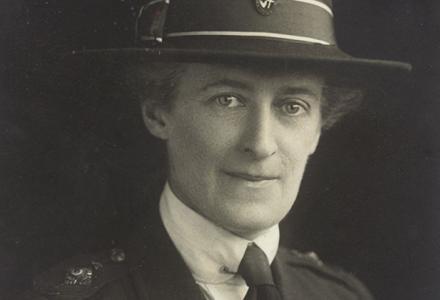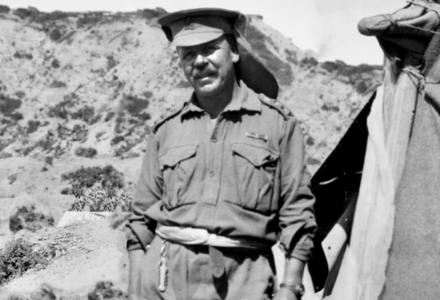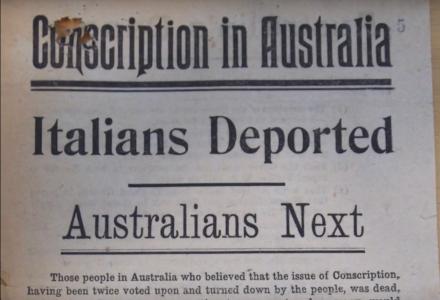William Archibald Windeyer came from a privileged family. But with that privilege came responsibility. Civic-minded to the core, Windeyer worked as an alderman of Hunter’s Hill municipal council for twenty-three years. He also served as the Mayor for nine of those years.
When hostilities broke out, Windeyer threw himself into patriotic work. He was a force behind the Belgian Relief Fund, the War Chest Fund, and one public appeal after another to help wounded soldiers. Windeyer also believed the war was just and campaigned for conscription.
After the war, in February 1921, Windeyer turned to the work of remembrance, touring the war cemeteries of Belgium and France. He carried a list of forty-four names with him on that journey: the boys from Hunter’s Hill who didn’t come home.
Windeyer’s journey might be called a pilgrimage by proxy. He went not just for himself, but for mothers who lost their only boy, fathers bottled up with grief, wives who barely knew their husbands. Windeyer promised to seek out every grave he could and he would bring a photograph of that grave home with him to Australia.
In his time abroad, the Mayor of Hunter’s Hill collected seeds of the flowers that grew in the cemeteries. On returning to Australia photographs and seeds were dispatched to dead men’s relatives—proof that life sprang anew even in a battered wasteland.
Consoling as these actions were, Windeyer’s pilgrimage embodied a deeply troubling element. In October 1921 he carried a protest to Australia House, noting that thousands of bodies were still left ‘uncovered’ on the battlefields. Windeyer claimed ‘Belgian peasants’, eager to reclaim their farmlands, ploughed bodies into the earth. No reward was offered for the recovery of Australian or British dead so there was simply no incentive to bury them.
Windeyer and the deputation he led demanded each and every battlefield be searched again ‘by Britishers’ and made to yield up its harvest of dead. They suggested a system of rewards for the discovery of Australian bodies. Within a fortnight, Prime Minister Billy Hughes announced his government would authorise ‘whatever expenditure may be necessary’ to resume the search for Australia’s missing.
The Windeyer story reminds us of the long and vexed search for the missing. It highlights how the needs of the living often overrode a heartfelt desire to commemorate the dead. Above all, it alerts us to the inequality of remembrance. Australia’s dead, including that cohort from Hunter’s Hill, would be honoured and commemorated, individualising their loss and providing some small measure of consolation for grieving families. Other nations had neither the resources nor the resolve to indulge this costly work of remembrance. To this day, tens of thousands of the missing remain littered across the battlefields of Belgium and France, Gallipoli and the Middle East and no real effort is made to recover, let alone identify, their remains.



